- Home
- Site Index
- About Me
-
My Books
- Book List & Themes
- Strictly for Adults Novels >
-
Tales from Portlaw
>
- No Need to Look for Love
- 'The Love Quartet' >
-
The Priest's Calling Card
>
- Chapter One - The Irish Custom
- Chapter Two - Patrick Duffy's Family Background
- Chapter Three - Patrick Duffy Junior's Vocation to Priesthood
- Chapter Four - The first years of the priesthood
- Chapter Five - Father Patrick Duffy in Seattle
- Chapter Six - Father Patrick Duffy, Portlaw Priest
- Chapter Seven - Patrick Duffy Priest Power
- Chapter Eight - Patrick Duffy Groundless Gossip
- Chapter Nine - Monsignor Duffy of Portlaw
- Chapter Ten - The Portlaw Inheritance of Patrick Duffy
- Bigger and Better >
- The Oldest Woman in the World >
-
Sean and Sarah
>
- Chapter 1 - 'Return of the Prodigal Son'
- Chapter 2 - 'The early years of sweet innocence in Portlaw'
- Chapter 3 - 'The Separation'
- Chapter 4 - 'Separation and Betrayal'
- Chapter 5 - 'Portlaw to Manchester'
- Chapter 6 - 'Salford Choices'
- Chapter 7 - 'Life inside Prison'
- Chapter 8 - 'The Aylesbury Pilgrimage'
- Chapter 9 - Sean's interest in stone masonary'
- Chapter 10 - 'Sean's and Tony's Partnership'
- Chapter 11 - 'Return of the Prodigal Son'
- The Alternative Christmas Party >
-
The Life of Liam Lafferty
>
- Chapter One: ' Liam Lafferty is born'
- Chapter Two : 'The Baptism of Liam Lafferty'
- Chapter Three: 'The early years of Liam Lafferty'
- Chapter Four : Early Manhood
- Chapter Five : Ned's Secret Past
- Chapter Six : Courtship and Marriage
- Chapter Seven : Liam and Trish marry
- Chapter Eight : Farley meets Ned
- Chapter Nine : 'Ned comes clean to Farley'
- Chapter Ten : Tragedy hits the family
- Chapter Eleven : The future is brighter
-
The life and times of Joe Walsh
>
- Chapter One : 'The marriage of Margaret Mawd and Thomas Walsh’
- Chapter Two 'The birth of Joe Walsh'
- Chapter Three 'Marriage breakup and betrayal'
- Chapter Four: ' The Walsh family breakup'
- Chapter Five : ' Liverpool Lodgings'
- Chapter Six: ' Settled times are established and tested'
- Chapter Seven : 'Haworth is heaven is a place on earth'
- Chapter Eight: 'Coming out'
- Chapter Nine: Portlaw revenge
- Chapter Ten: ' The murder trial of Paddy Groggy'
- Chapter Eleven: 'New beginnings'
-
The Woman Who Hated Christmas
>
- Chapter One: 'The Christmas Enigma'
- Chapter Two: ' The Breakup of Beth's Family''
- Chapter Three: From Teenager to Adulthood.'
- Chapter Four: 'The Mills of West Yorkshire.'
- Chapter Five: 'Harrison Garner Showdown.'
- Chapter Six : 'The Christmas Dance'
- Chapter Seven : 'The ballot for Shop Steward.'
- Chapter Eight: ' Leaving the Mill'
- Chapter Ten: ' Beth buries her Ghosts'
- Chapter Eleven: Beth and Dermot start off married life in Galway.
- Chapter Twelve: The Twin Tragedy of Christmas, 1992.'
- Chapter Thirteen: 'The Christmas star returns'
- Chapter Fourteen: ' Beth's future in Portlaw'
-
The Last Dance
>
- Chapter One - ‘Nancy Swales becomes the Widow Swales’
- Chapter Two ‘The secret night life of Widow Swales’
- Chapter Three ‘Meeting Richard again’
- Chapter Four ‘Clancy’s Ballroom: March 1961’
- Chapter Five ‘The All Ireland Dancing Rounds’
- Chapter Six ‘James Mountford’
- Chapter Seven ‘The All Ireland Ballroom Latin American Dance Final.’
- Chapter Eight ‘The Final Arrives’
- Chapter Nine: 'Beth in Manchester.'
- 'Two Sisters' >
- Fourteen Days >
-
‘The Postman Always Knocks Twice’
>
- Author's Foreword
- Contents
- Chapter One
- Chapter Two
- Chapter Three
- Chapter Four
- Chapter Five
- Chapter Six
- Chapter Seven
- Chapter Eight
- Chapter Nine
- Chapter Ten
- Chapter Eleven
- Chapter Twelve
- Chapter Thirteen
- Chapter Fourteen
- Chapter Fifteen
- Chapter Sixteen
- Chapter Seventeen
- Chapter Eighteen
- Chapter Nineteen
- Chapter Twenty
- Chapter Twenty-One
- Chapter Twenty-Two
-
Celebrity Contacts
-
Thoughts and Musings
- Bereavement >
- Nature >
-
Bill's Personal Development
>
- What I'd like to be remembered for
- Second Chances
- Roots
- Holidays of Old
- Memorable Moments of Mine
- Cleckheaton Consecration
- Canadian Loves
- Mum's Wisdom
- 'Early life at my Grandparents'
- Family Holidays
- 'Mother /Child Bond'
- Childhood Pain
- The Death of Lady
- 'Soldiering On'
- 'Romantic Holidays'
- 'On the roof'
- Always wear clean shoes
- 'Family Tree'
- The importance of poise
- 'Growing up with grandparents'
- Love & Romance >
- Christian Thoughts, Acts and Words >
- My Wedding
- My Funeral
- Audio Downloads
- My Singing Videos
- Bill's Blog
- Contact Me
The Outcasts
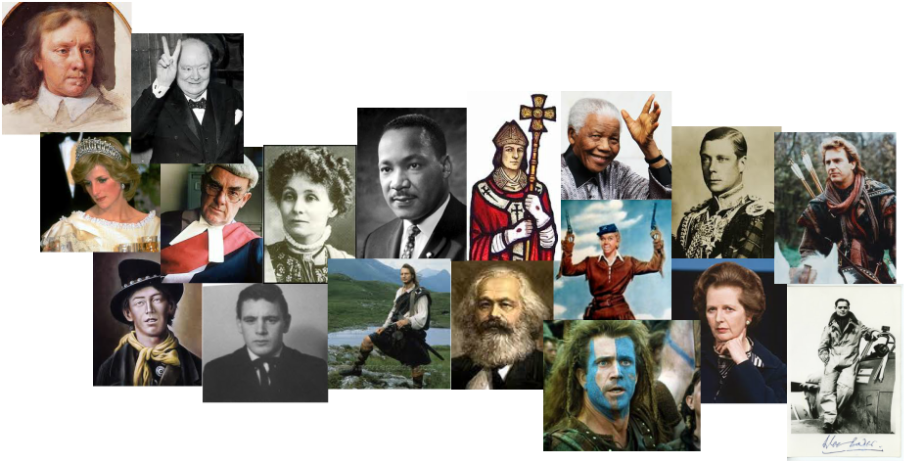
If the truth be known, I have always held a sneaky regard and instant attraction for some of life’s rebels. I refer to those people, whether they come from on high or low, who, because of the way they were and what they did, resulted in them being made outcasts from their peer group.
In November of 1990, a number of outcasts came together to help me with a special ‘Children In Need’ project I had wanted to get off the ground. While I would be using the rest of the month to having numerous celebrities visiting Kirklees’ schools and reading from my first children’s book, ‘Everyone and Everything’, I wanted to start off by reminding the public about the people I really wanted to help through the sale of my books.
In November of 1990, a number of outcasts came together to help me with a special ‘Children In Need’ project I had wanted to get off the ground. While I would be using the rest of the month to having numerous celebrities visiting Kirklees’ schools and reading from my first children’s book, ‘Everyone and Everything’, I wanted to start off by reminding the public about the people I really wanted to help through the sale of my books.
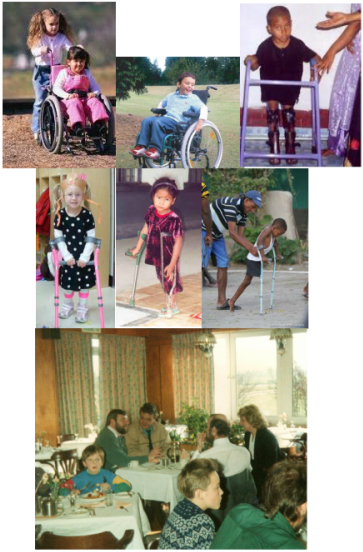
I wanted to help any child in need, and in particular children and young persons who were severely handicapped and required the on-going services of special carers in order to negotiate their everyday existences. Such children were top of my list.
The project involved two objectives: to bus a group of sixty severely handicapped children and young persons for a 'day out' they would remember, and to provide their parents and other carers with a much deserved day's respite.
To bring this about, I needed to obtain the services of many people in less than two weeks' time.
Needing to have the necessary publicity for the event, I decided to approach someone suitable, who was then the ‘hot potato’ of the hour, Rosie Barnes. Rosie was the Nottingham-born politician who, along with her husband Graham, became a member of the Social Democratic Party after the Labour Party views lurched to the left during the 80s. She later became MP in 1987.
By 1990, Rosie had been truly outcast by members of the Labour Party she had once been a follower of and was viewed as a political pariah by the current membership. She did however, have good looks in her favour and as ‘darling of the press’, she was guaranteed to attract positive publicity wherever she went. She agreed to read to the children on the day in question and a hotel venue in Bedale was eventually identified. The venue needed to be in Bedale to enable Rosie to attend it due to other commitments she had at a nearby political conference.
The project involved two objectives: to bus a group of sixty severely handicapped children and young persons for a 'day out' they would remember, and to provide their parents and other carers with a much deserved day's respite.
To bring this about, I needed to obtain the services of many people in less than two weeks' time.
- I needed the services of around two dozen trained carers to accompany the children on their day out.
- I needed a coach, which could accommodate 60 handicapped children,two dozen adult carers and enough money to fuel it, 60 miles up the A1 motorway and back.
- I needed a driver to drive the bus there and back.
- I needed a hotel to provide a slap-up meal for around 80-seated people, which was to be served and eaten in a room large enough for the guests to be entertained.
- I needed a Stately Home for the coachload to visit on the return journey.
- I wanted the children to finish their day back in Huddersfield by joining their parents at McDonalds for burger and chips, sitting down without the fear of being watched as they ate.
Needing to have the necessary publicity for the event, I decided to approach someone suitable, who was then the ‘hot potato’ of the hour, Rosie Barnes. Rosie was the Nottingham-born politician who, along with her husband Graham, became a member of the Social Democratic Party after the Labour Party views lurched to the left during the 80s. She later became MP in 1987.
By 1990, Rosie had been truly outcast by members of the Labour Party she had once been a follower of and was viewed as a political pariah by the current membership. She did however, have good looks in her favour and as ‘darling of the press’, she was guaranteed to attract positive publicity wherever she went. She agreed to read to the children on the day in question and a hotel venue in Bedale was eventually identified. The venue needed to be in Bedale to enable Rosie to attend it due to other commitments she had at a nearby political conference.

Even after I’d secured the services of my celebrity, however, not everything in the garden was ‘rosy.’ I was left with one small problem. My purse was empty and I had insufficient finances and overall resources. Working on a shoe string budget would have been infinitely preferable to what I really had in my purse, as my total resources were ‘nil’ and the day of the launch was less than two weeks away. I had started with 'an idea' and 'no money', and now, all that was required was to 'make it happen'. Soon it would be time to visit the wishing well.
Two things have never surprised me more over the years: the things that can be achieved when ‘cannot be done’ is removed from one’s vocabulary and set of beliefs, and is replaced with ‘can do!’.
The second was how willing all manner of folk are prepared to give towards charitable causes.
Two things have never surprised me more over the years: the things that can be achieved when ‘cannot be done’ is removed from one’s vocabulary and set of beliefs, and is replaced with ‘can do!’.
The second was how willing all manner of folk are prepared to give towards charitable causes.
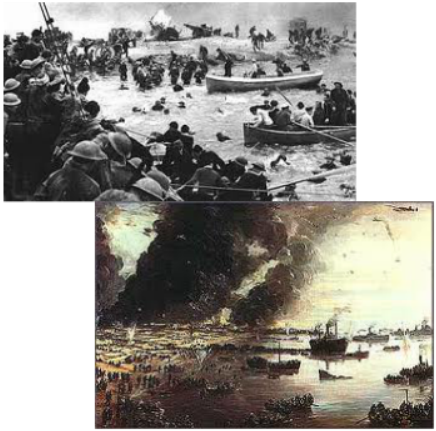
- The charitable capacity of the British people is enormous and they will always come to the rescue in times of need as they did in their thousands at Dunkirk in 1940, when they were prepared to give their lives if necessary in order to bring our stranded soldiers back home from the enemy beach head.
- During my many years visiting over 2000 Yorkshire schools, the one thing that always impressed me was how the teachers taught the young children from five years upwards, the importance of 'giving' to others who are in greater need. The message goes out loud and strong in our schools, that it is only through the act of 'giving' can we become the truly good person we were meant to be. This is the very same message that led to the 'Dunkirk spirit.'
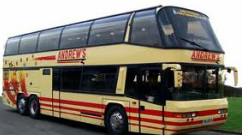
Within the next week, I’d managed to persuade a coach company in Huddersfield to provide the free use of one of their special coaches for the day stated. However, they couldn’t provide a driver or the fuel to move the bus! An appeal in the local press got me the individual who would pay for the coach fuel. However, we still didn’t have a coach driver and only nine days remaining to find one. Two days later, a coach driver who’d been made redundant some weeks earlier offered his free driving services for the day, and after arranging sponsorship to pay for his necessary insurance, the coach side of the project had been secured.

Throughout the remainder of the time left, I managed to obtain the free services of twenty two trained carers for the day, thanks to a number of caring organizations in Huddersfield, along with the permission of fifty nine parents to allow their handicapped charges out of their care for one day. A children’s magician by the name of Ted Pickles from Ossett agreed to accompany the group for the day and to entertain them free of charge during the coach journeys and at the hotel.
It was proving virtually impossible to locate a hotel in the vicinity of Bedale which was capable of feeding around 80 people in a large entertainment room; free of charge of course! I eventually managed to persuade the manager and part owner of one hotel, after he learned of the attendance of Rosie Barnes in the party, who would undoubtedly attract the media; perhaps even the national press!
It was proving virtually impossible to locate a hotel in the vicinity of Bedale which was capable of feeding around 80 people in a large entertainment room; free of charge of course! I eventually managed to persuade the manager and part owner of one hotel, after he learned of the attendance of Rosie Barnes in the party, who would undoubtedly attract the media; perhaps even the national press!
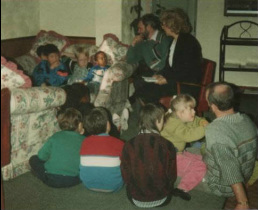
The journey to Bedale went off without a hitch and the resident magician on the coach managed to make the children’s journey more pleasurable. Rosie read to all the children, and she and her husband Graham proved to be a delightful couple. The hotel food was simply scrumptious and no expense seemed to be have been spared.
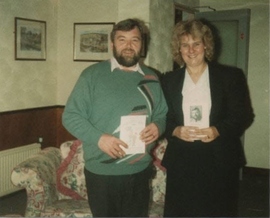
On the return journey, the coach pulled into ‘Harewood House’ the family home of the Lascelles’ family since the 18th Century. This magnificent dwelling was now occupied by the Earl and Countess of Harewood, 1st cousin to the Queen. The Earl had always displayed a rebellious spirit, which did not fit easily into royal circles.
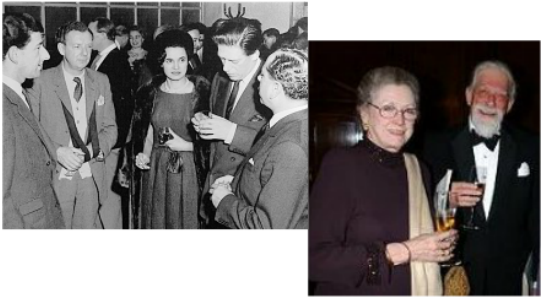
In 1949, his marriage to Marion Stein, the daughter of Erwin Stein, an Austrian Jew was viewed in royal circles as an ‘unconventional match’. However, any reluctance by royal circles to this marriage paled into insignificance by his marriage to the Australian violinist, Patricia Tuckwell, who bore him a son out of wedlock in 1964. It would be 1977 before the Queen met the new Countess of Harewood during her Silver Jubilee celebrations and I strongly suspect that the Earl remained very much an ‘outcast’ until the day he died.
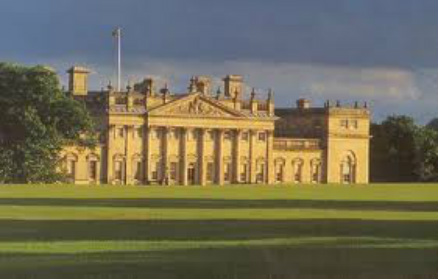
The coach was allowed special permission to pull up immediately outside the front of the splendid House, where both the Earl and Countess of Harewood were there to greet us personally on the steps. The entire party was invited inside Harewood House where the Earl himself provide us with a brief tour, during which some of the ‘corded off’ areas were opened in order that the children could see some of the finest Chippendale furniture in the world ever amassed in one place.
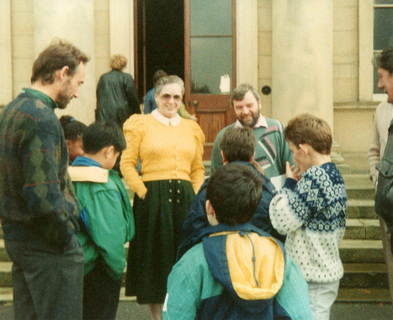
Following the tour inside Harewood House, free tickets were given to all the party to visit the famous aviary within the grounds along with some afternoon refreshments.
By the time the coach got back to Huddersfield around 8pm that day, the children’s parents met them and around 140 people were seated inside McDonalds and received burger, chips and drink ‘on the house’. In order to facilitate this special party, only one section of McDonalds was accessible to the public while the children, their parents and the carers ate.
The day had been a huge success, which only the charitable nature of a number of special people had made possible. Many of the benefactors who had given their time and resources to such a venture selflessly, had themselves been ‘outcasts’ in their own peculiar way. Perhaps being able to see the children they had met that day also as having been outcast from the mainstream of society, led them to more easily identify with this cause when the opportunity initially availed itself.
By the time the coach got back to Huddersfield around 8pm that day, the children’s parents met them and around 140 people were seated inside McDonalds and received burger, chips and drink ‘on the house’. In order to facilitate this special party, only one section of McDonalds was accessible to the public while the children, their parents and the carers ate.
The day had been a huge success, which only the charitable nature of a number of special people had made possible. Many of the benefactors who had given their time and resources to such a venture selflessly, had themselves been ‘outcasts’ in their own peculiar way. Perhaps being able to see the children they had met that day also as having been outcast from the mainstream of society, led them to more easily identify with this cause when the opportunity initially availed itself.
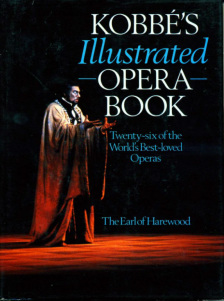
After that special day, the Earl and Countess of Harewood read for me on three occasions in Kirklees Schools. Both couples were in their element as they jointly read and the Earl was very dramatic in his rendition. Over the years that I had contact with them, I was forever enthralled by the sheer erudition and wide experience of the Earl. Whether it was literature, music, drama, theatre or film, George Henry Hubert Lascelles was the true master of his brief in whatever role he undertook.
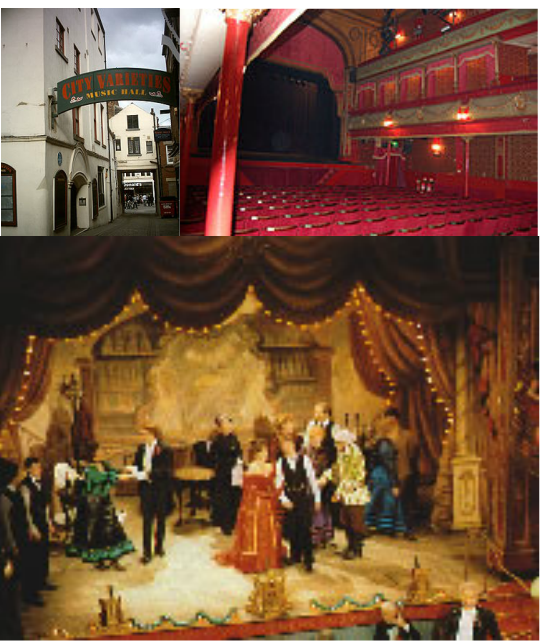
During the 90s, I persuaded the Manger of the world-famous Leeds City Varieties to hire me the use of the premises in order that I could present a show in aid of ‘The Holly Bank School for disabled Young Persons’. At the time, Peter Sanderson (The Manager) had never previously allowed a member of the public to hire this world-renowned stage in order to present a Charity Concert which contained all amateurs. However, he eventually did and I’m pleased to say that there have been numerous Charity Shows there since. No doubt, having the Earl and Countess of Harewood as guests of honour occupying the Royal Box helped to persuade Mr Sanderson that his theatre would be safe in our hands!
Not being an internet user then, it was only in the later years of our acquaintance when I learned how seeped the Earl of Harewood was in the world of word, music, drama, art and culture. Not only was he the Chairman of Opera North, but he also Chaired the British Board of Film Classification in the 80/90s, apart from directing numerous annual music festivals in Edinburgh, Leeds, and Adelaide, Australia. As co-author and editor of Kobbes Complete Opera Book there was nothing about opera worth knowing that he didn’t know. He was also one of the founders of the English Stage company at the Royal Court.
Not being an internet user then, it was only in the later years of our acquaintance when I learned how seeped the Earl of Harewood was in the world of word, music, drama, art and culture. Not only was he the Chairman of Opera North, but he also Chaired the British Board of Film Classification in the 80/90s, apart from directing numerous annual music festivals in Edinburgh, Leeds, and Adelaide, Australia. As co-author and editor of Kobbes Complete Opera Book there was nothing about opera worth knowing that he didn’t know. He was also one of the founders of the English Stage company at the Royal Court.
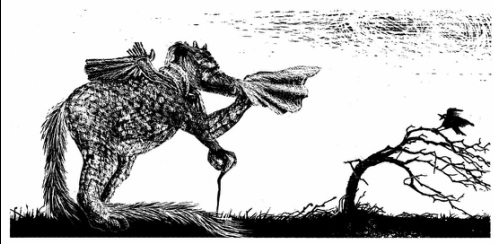
Who better then to dramatically read to school children from my book ‘Douglas the Dragon’ (an outcast dragon), than this man of endless talent and understanding. His most poignant performance was when he and the Countess visited ‘Wellhouse Primary School’ in Mirfield (since renamed) to read a story entitled, ‘Douglas gets the Sneezes.’ If only I’d known the trouble that ‘sneezes’ had caused this good man as a child himself, I’d have better understood the throw-away line when he remarked, “Bad thing, sneezes - bad thing!”
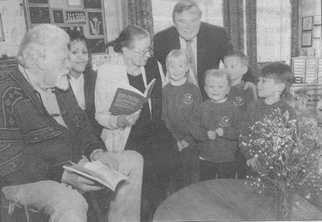
This grandson to King George V, who grew more like his grandfather the older he got, never considered himself to be like his mother’s relations. It is reported that once, while in a pram at Buckingham Palace, he sneezed in the presence of the King. Upon being the witness to such a ‘mutinous display,’ King George V is reported to have said, “Get that damn child away from me!” (Extract from the Telegraph 12th July, 2011).
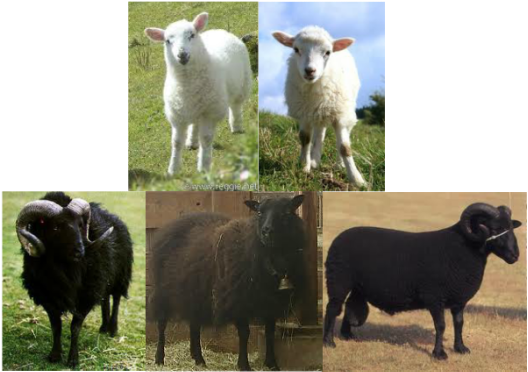
Being an ‘outcast’ in the society of today, where understanding and compassion for those who happen to be less fortunate in their circumstances or too different in their characteristics from the norm can sometimes be very hard. We live in a crude age of crippling self-interest, where there is too often somebody up a hill looking down on others.
I believe, however, that for every selfish person you can find in whatever place you live, you’ll find another ten selfless people as their next door neighbours.
Copyright William Forde March, 2012.
